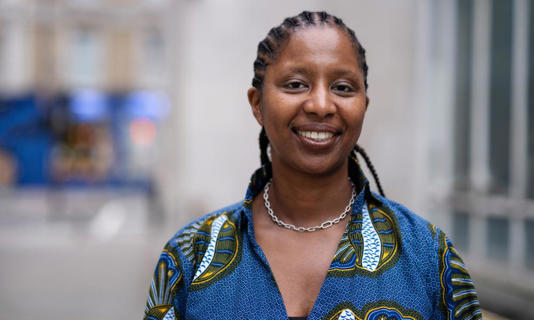- Details
- East Africa
- 949
Black headteachers from across the UK have written letters to the next generation of school leaders, urging them to become role models for students who are crying out for “people who look like them”.
The letters are compiled in a book by Amanda Wilson, a headteacher at a primary school in Greenwich, south-east London, which is aimed at encouraging black teachers to pursue leadership positions to combat their current under-representation in the sector.
Letters To a Young Generation: Aspiring School Leaders includes contributions from 18 black headteachers, who detail experiences of being stereotyped, working out of their comfort zones and the pressures of senior management.
“When you are called upon to deal with issues or projects that are perceived to be better suited to you, you know they think things like, ‘the Black man is better at behaviour and walking the corridors than leading on teaching and learning’,” writes Evelyn Forde MBE, the 2021 Times Educational Supplement (TES) headteacher of the year and the president of the Association of School and College Leaders (ASCL).
“It is in these instances that you will have to demonstrate bold leadership, when you will have to professionally and respectfully challenge.”
Emmanuel Botwe, a head based in Macclesfield, speaks about his experiences in an area outside a large multicultural city.
“I never thought that I would have ever been a senior leader outside of London,” he writes. “I had heard stories of racism, old-fashioned governing bodies and challenges for leaders of colour. Your existence in positions of authority will inspire far more people than you will ever realise. Furthermore, you will help to normalise the idea that we can be headteachers.”
Speaking at the launch of the book, Wilson said it was important all voices were heard. “I consulted 200 headteachers past and present all across the country in the process of making the book … it’s nice to see the support from colleagues [for the book] because I go into meetings and often I’m the minority, but I look around the room tonight and it’s good to be in the majority for once!”
Recent research has shown the diversity of the pupil body in schools in England is outstripping the teaching workforce. Minority ethnic applicants to initial teacher training are substantially less likely to be accepted, with applicants recorded as Black having the lowest acceptance rate and substantially lower than those for white applicants. In 2021, of the 20,786 headteachers in England, only 1% were Black.
Even though London has the most diverse teaching workforce, it lags so far behind the capital’s minority ethnic pupil population that the gap is the widest in England.
Wilson said her book was a challenge to those who have the authority to employ teachers. “Trusts and local authorities need to ask themselves the question – are they making sure that there is a diversity not only in their panels but also in the governing decision-making bodies?”
Prof Paul Miller, social justice director of the Institute for Educational & Social Equity and the first Black person to be appointed a professor of educational leadership at a UK university, said of the book: “The experiences in these letters are powerful and should provide aspiring school leaders with depths of insights on their journey to headship. The letters are crucial to our understanding of the black school leadership experience.” Story by Morgan Ofori , Guardian






